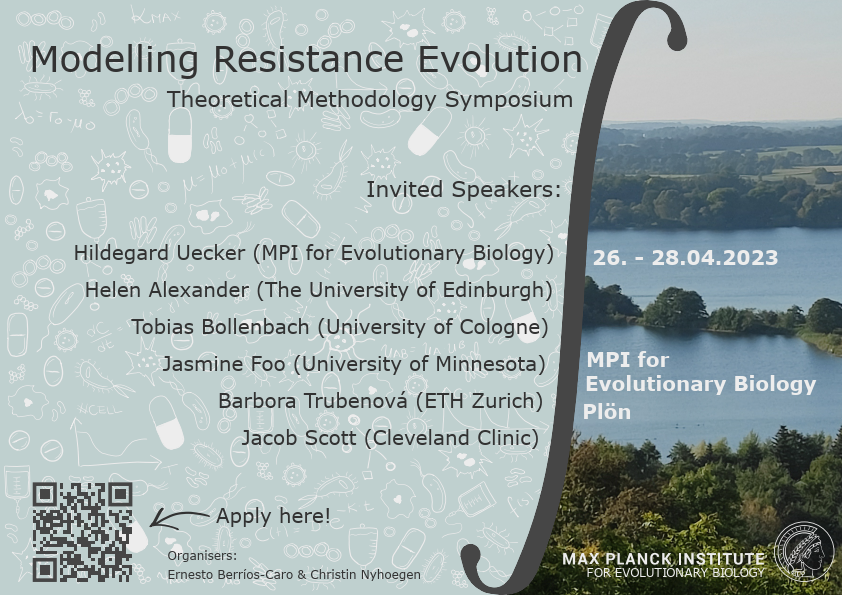Speaker
Description
Antibiotic resistance genes are frequently carried on bacterial plasmids. Because plasmids exist in multiple copies in the host bacterial cell, distinct plasmid copies can carry distinct alleles, allowing for heterozygosity not possible for loci on haploid bacterial chromosomes. This plasmid-mediated heterozygosity of antibiotic resistance alleles can produce multidrug resistance, in which a single bacterial strain is resistant to multiple antibiotics, which is a serious problem in the clinical context. However, the contribution of plasmid-mediated heterozygosity to resistance evolution is limited by the fact that it is subject to constant loss due to random segregation of plasmids on cell division: each division has some probability of producing a homozygous daughter cell. We present a model of the rapid evolution of multidrug resistance in a bacterial population due to plasmid-mediated heterozygosity, focusing on the establishment of a novel resistance allele on a plasmid in a bacterial population already adapted to one antibiotic but undergoing demographic decline due to simultaneous treatment with multiple antibiotics (an evolutionary rescue scenario). We show the probability of population persistence (rescue) of the bacterial population is largely determined by the selective advantage of the heterozygote (multidrug resistant) bacteria and the plasmid copy number. In particular, we determine the threshold on the selective advantage of heterozygotes required to overcome segregative loss and make population persistence possible at all; this threshold decreases with increasing copy number of the plasmid. We further show that the possibility of the formation of plasmid cointegrates from the fusion of plasmids increases the probability of rescue, as cointegrated plasmids which carry both resistance alleles are no longer subject to stochastic loss. These results contribute to our understanding the evolution of antibiotic resistance in complex selective environments and the contribution of plasmid traits, such as copy number to bacterial evolution; future work will include extending the models to the emergence of multidrug resistance by multiple mutations from entirely non-resistant cells, and the incorporation of horizontal gene transfer.

